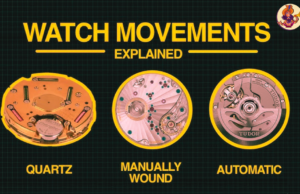The human heart is a vital organ that pumps blood throughout the body. But when it fails, a mechanical heart can step in to save lives. This incredible technology is changing the way we treat heart disease. Let’s explore how mechanical hearts work, their impact on patients, and their use worldwide.
How Does a Mechanical Heart Work in Humans?
A mechanical heart, also known as a ventricular assist device (VAD) or total artificial heart (TAH), is a machine that takes over the pumping function of a failing heart. It is designed to help or replace a damaged heart. This is essentially how mechanical hearts work.
- Pumping Mechanism: The device uses a pump to move blood from the heart to the rest of the body. It ensures oxygen-rich blood reaches organs and tissues.
- Power Source: The mechanical heart is powered by batteries or an external power supply. Wires or tubes connect the device to the body, often through the skin.
- Control System: A small computer inside the device monitors and adjusts blood flow to match the body’s needs.
Mechanical hearts can be used temporarily while waiting for a heart transplant or permanently for patients who are not eligible for a transplant.
How is the Patient’s Condition Now?
Patients with mechanical hearts often experience significant improvements in their health. They can breathe easier, feel less tired, and return to daily activities. However, living with a mechanical heart requires careful monitoring. This is crucial knowledge in understanding how mechanical hearts work in daily life.
- Lifestyle Changes: Patients must carry power sources and follow strict hygiene to prevent infections.
- Medical Checkups: Regular visits to the doctor are essential to ensure the device works properly.
- Emotional Support: Adjusting to life with a mechanical heart can be challenging, so emotional and psychological support is crucial.
Despite these challenges, many patients lead active and fulfilling lives with the help of this technology.
Is the Mechanical Heart Already in Use Around the World?
Yes, mechanical hearts are being used globally. They are approved in many countries, including the United States, Europe, and parts of Asia. Hospitals with advanced cardiac care programs often offer this treatment and show how mechanical hearts work effectively in different settings.
- Temporary Use: In some cases, mechanical hearts are used for short-term support during recovery or while waiting for a donor heart.
- Permanent Use: For patients who cannot receive a transplant, mechanical hearts provide a long-term solution.
While the technology is expensive and not yet widely available in all regions, it is becoming more accessible as research and development continue.
Conclusion
Mechanical hearts are a groundbreaking innovation in medicine. They offer hope to patients with severe heart failure, improving their quality of life and extending survival. As technology advances, these devices are likely to become even more effective and accessible, saving more lives around the world.
In short, the mechanical heart is a lifeline for many, and it clearly demonstrates how mechanical hearts work to keep the human heart beating.















